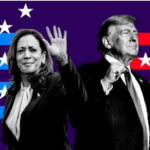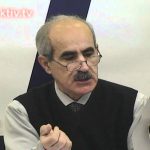 BY THOMAS DE WAAL, Foreign Policy
BY THOMAS DE WAAL, Foreign Policy
There’s a distinct whiff of desire for political change wafting through the Caucasus.
How do you renovate a house when people are shaking the foundations? This is the question facing Vladimir Putin’s Russia as well as the three countries of the South Caucasus: Armenia, Azerbaijan and Georgia. In each place, apparently secure governing regimes have faced or are facing revived forms of public protest.
Each of these countries experienced mass political turbulence in the 1990s, but for years it looked as though people had lost faith in public engagement and were content to tolerate any ruler who guaranteed a modicum of stability. That is no longer the case: After a period of dormancy, politics is back.
In Georgia, President Mikheil Saakashvili surrendered most of his powers when last October’s election unexpectedly went against him — although he is continuing the political fight within the system. Now the country under the spotlight is tiny Armenia. The country held a presidential election on February 18 in which serving president Serzh Sargsyan was elected to a new five-year term. An easy victory for Sargsyan appeared pre-ordained as two other presumed rivals dropped out of the race. But in the last two weeks of the campaign, opposition candidate Raffi Hovannisian, independent Armenia’s first foreign minister, surged forward.
On polling day, Sargsyan was declared the winner with 59 percent of the vote. Hovannisian was given an official vote of around 37 percent and declared to have won the poll in the country’s second and third cities, Gyumri and Vanadzor.
In effect, the country’s many discontented have woken up — but too late to make a difference on the election itself. Had the campaign lasted two weeks longer it is quite possible that Hovannisian’s momentum would have carried him into a second round run-off.
As it is, world leaders, including President Obama, have now congratulated Sargsyan on his victory. The State Department characterized the election as “generally well-administered and characterized by a respect for fundamental freedoms, including those of assembly and expression.”
Armenia’s problem was not so much election day as the playing field itself: A media heavily controlled by the government, local officials serving the narrow ruling elite rather than the state as such. The head of the OSCE election observer mission, Heidi Tagliavini, picked up on this when she commented on “the blurring of the distinction between the state and the ruling party.”


